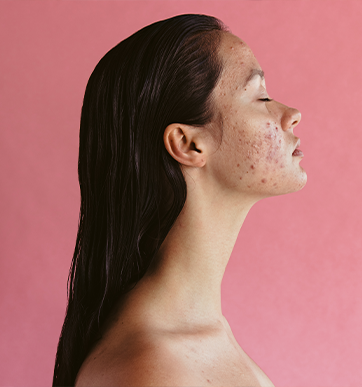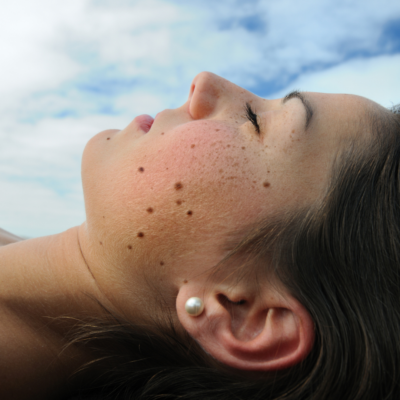
10 Ways You May Be Making Your Acne Worse – And What To Do Instead
Reviewed by a California Skincare Specialist
Trying your best to take care of your acne but still getting breakouts? For this month, we are highlighting ways you may be aggravating your acne without realizing it and ways to help mitigate the problem.
1. Washing your face throughout the day.
If you suffer from acne, you may worry that daily dust and bacteria combine with your skin’s oils to clog pores and cause flareups. Wanting to constantly wash your face is a natural response. However, doing so can irritate sensitive skin and actually cause the breakouts you were trying to prevent.
Instead, wash your face only twice a day. Ideally, once when you wake up and again before you go to bed at night. On days you work out, opt for a cool water splash in the morning and cleanse your face after you build up a sweat. Use a cleanser formulated for acne-prone skin.
2. Scrubbing your skin to get it clean.
You may dislike your acne but trying to get rid of it with vigorous scrubbing can backfire and make it worse.
Instead, be gentle. Go easy on your acne-affected areas. Use a light touch with your fingertips. Apply a small amount of a mild acne cleanser to your hands and lightly massage in a small circular motion. Rinse and pat dry.
3. Wiping sweat with a towel after a workout.
You’ve got the right idea. You should clean away sweat before it clogs your pores. But, vigorous rubbing with a rough towel can aggravate acne lesions and spread bacteria, rather than clean it off.
Instead, lightly pat sweaty areas dry with an absorbent, soft towel. Lift the towel and then press it to a different area, rather than using one continuous wiping motion.
4. Squeezing or popping blemishes.
Without realizing it, you may be forcing bacteria deeper into your skin as you squeeze. And you could also give yourself permanent scars.
Instead, get the blemish treated by a board-certified dermatologist like those at California Skin Institute. Acne treatment and medication is covered by most insurance.
5. Applying acne medication only on your blemishes.
Of course, you want to focus on your problem areas. But, trying to manage them this way could fail to thwart new breakouts.
Instead, apply a thin layer of acne medication, not just on the blemish itself, but all over the entire affected area. Consider it preventive medicine.
6. Switching acne medication every few weeks.
You’re understandably in a hurry to clear up your acne. And it’s easy to get swayed by the promises on the labels of something you haven’t tried. Yet, you may be unintentionally sabotaging yourself.
Instead, give an acne medication time. It can take six to eight weeks for an acne medication to improve your skin. Complete clearing can take three to four months.
7. Using hair products and skin cosmetics not formulated for oily skin or sensitive skin.
Many products may be attractively packaged and have a lovely scent, but they may contain oils and other ingredients that can make your skin break out.
Instead, read labels to find products that say “non-comedogenic,” “for sensitive skin” or “won’t clog pores.” When in doubt, check with your California Skin Institute board-certified dermatologist.
8. Sharing makeup and makeup applicators and brushes.
Your friends may be super clean. However, everyone’s skin carries oils, dead skin cells and bacteria. If you transfer these to your skin, your pores could get clogged and this can trigger flareups.
Instead, find other ways to share with your friends. Keep your makeup, brushes and applicators to yourself.
9. Sleeping in your makeup.
Your skin cells need to breathe and renew themselves while you sleep. Blocking this process with a layer of makeup saturated with your skin’s oils paves the way for problems.
Instead, try keeping a stash of makeup remover wipes near your bed. Make sure they say “non-comedogenic.”
10. Overly drying out your skin.
This may sound contradictory after we’ve been warning you about blocking your pores with greasy products, but it’s true. Drying out your skin can push oil production into overdrive to restore balance. And that can be too much of a good thing.
Instead, be sure to use your acne medications only as directed. And if your skin starts feeling dry, use a light moisturizer designated for oily skin.
If following these suggestions doesn’t seem to help, it may be time to discuss prescription acne medication with your California Skin Institute licensed practitioner.



 / 291 Reviews
/ 291 Reviews